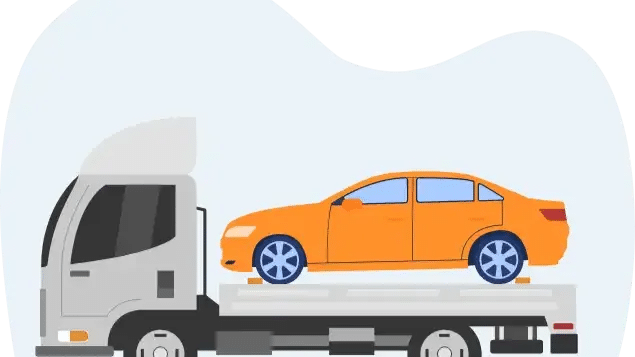In an era where sustainability is at the forefront of business concerns, the transportation industry faces increasing pressure to reduce its environmental footprint. Companies in the car transport industry, such as transportinghighway.com, are facing the imperative to adopt sustainable practices. This is not only driven by regulatory requirements but also by a commitment to minimize their impact on the planet.
In this comprehensive exploration of the impact of sustainability on car transport, we delve into the benefits of entrusting the transportation of vehicles to specialized companies rather than opting for individual transport solutions.
By the end of this exploration, you will have a better understanding of the importance of sustainability in the car transport industry and the role that specialized car transport companies can play in reducing the environmental impact of vehicle transportation.
The Environmental Toll of Individual Car Transport:

Inefficient use of resources:
When individuals or businesses transport vehicles on their own, it often leads to inefficient use of resources such as fuel, time, and manpower. Each vehicle traveling individually requires its own fuel supply, resulting in high fuel consumption per vehicle.
Higher carbon emissions:
Individual car transport contributes to increased carbon emissions due to the inefficiencies inherent in transporting vehicles separately. Each car traveling alone emits pollutants into the atmosphere, including carbon dioxide (CO2), nitrogen oxides (NOx), and particulate matter (PM), contributing to air pollution and climate change.
Empty return trips:
In many cases, individual transport solutions result in empty return trips, where vehicles travel back to their origin without carrying any cargo. These empty trips not only waste fuel but also contribute to unnecessary emissions, wasted time and traffic congestion.
Increased traffic congestion:
The proliferation of single-car transports adds to traffic congestion on roads and highways, particularly during peak travel times. Traffic congestion leads to longer travel times, increased fuel consumption, and higher emissions, further exacerbating environmental problems such as air pollution and gas emissions.
Infrastructure strain:
Individual car transports put additional strain on infrastructure such as roads, bridges, and tunnels. The increased traffic volume and vehicle weight contribute to road deterioration and maintenance requirements, leading to higher infrastructure costs and environmental degradation.
By further elaborating on these points, we can highlight the significant environmental drawbacks associated with individual car transport. These inefficiencies not only contribute to environmental degradation but also impose additional costs and burdens on society as a whole. In contrast, group transport solutions offered by specialized car transport companies present a more sustainable alternative, reducing the environmental impact per vehicle while maximizing efficiency and resource utilization.
The Efficiency of Group Transport by Car Transport Companies:

Consolidated shipments:
Car transport companies specialize in consolidating multiple vehicles into a single shipment, optimizing the use of available space and resources. Rather than each vehicle being transported individually, which would require separate trips and increase overall emissions, these companies efficiently pack multiple cars onto a single transport vehicle.
Economies of scale:
By transporting cars in bulk, car transport companies can achieve significant efficiency gains. Larger shipments allow for more efficient use of fuel, as the energy required to transport each vehicle decreases when multiple cars are carried in one trip. Additionally, the cost per vehicle decreases as fixed costs, such as vehicle maintenance and driver wages, are spread across a larger number of vehicles.
Load optimization:
Transport companies employ sophisticated logistics and planning techniques to ensure that each shipment is fully optimized. This includes strategically arranging vehicles within transport trailers to maximize space utilization and minimize wasted capacity. Through careful planning and coordination, car transport companies can achieve high load factors, ensuring that each trip is as efficient as possible.
Decreased Traffic Congestion:
Group transportation plays a crucial role in mitigating traffic congestion by diminishing the volume of individual vehicles on the roads. Instead of numerous cars independently traveling to their respective destinations, group transport merges these trips into a unified, more efficient operation. This helps traffic flow, decreasing travel durations and enhancing road safety for all commuters.
Customer Advantages:
In addition to the environmental perks, collective transportation presents many benefits for customers. When relying on dedicated firms for their vehicle transportation requirements, customers can experience savings in costs, reduced transit durations, and enhanced assurance in the efficient and dependable transport of their vehicles. Moreover, group transportation minimizes the complexity and inconvenience associated with coordinating individual transportation arrangements, enabling customers to concentrate on their primary business activities.
Environmental impact:
The environmental benefits of group transport extend beyond reduced emissions and congestion. By consolidating shipments, car transport companies minimize the environmental footprint associated with vehicle transportation, including fuel consumption, air pollution, and greenhouse gas emissions. This contributes to overall environmental sustainability by reducing the industry’s impact on climate change and environmental degradation.
Let’s dive deeper into the environmental consequences at the next point. It’s an important topic that deserves our attention and consideration.
Environmental Benefits of Partnering with Car Transport Companies:

Lower Emissions:
Congestion leads to vehicles spending more time idling in traffic, resulting in increased emissions of gases and air pollutants such as carbon dioxide (CO2), nitrogen oxides (NOx), and particulate matter (PM).
Alleviation of Noise Pollution:
Traffic congestion is not only a contributor to air pollution but also a source of noise pollution. By reducing the number of vehicles on the road, group transport helps mitigate noise levels, benefiting both urban and rural environments.
Mitigation of Environmental Degradation:
Congestion exacerbates wear and tear on infrastructure, including roads, bridges, and tunnels. The environmental consequences of this degradation include:
- Increased Maintenance Needs: Congested roads experience higher rates of deterioration, requiring more frequent maintenance and repairs. This not only consumes resources but also generates additional emissions from construction vehicles and machinery.
- Habitat Fragmentation: Infrastructure expansion and maintenance activities associated with congestion can lead to habitat fragmentation, disrupting ecosystems and threatening biodiversity.
- Water Pollution: Runoff from road surfaces, exacerbated by congestion-induced erosion, can contribute to water pollution by carrying pollutants such as sediment, oil, and heavy metals into waterways.
Preservation of Natural Habitats:
- Wildlife Corridors: Reduced congestion minimizes habitat fragmentation, allowing for the creation of wildlife corridors that facilitate the movement of animals between fragmented habitats.
- Ecosystem Services: Intact natural habitats provide essential air and water purification, carbon elimination, and climate regulation. Preserving these habitats through sustainable transportation practices benefits both human communities and biodiversity.
- Recreation and Ecotourism: Natural habitats preserved through reduced congestion offer opportunities for recreation, ecotourism, and nature-based activities, supporting local economies and fostering appreciation for the natural environment.
The Economic and Operational Advantages:
Cost savings:
- Scale efficiencies: Group transport allows car transport companies to leverage economies of scale by consolidating multiple vehicles into a single shipment. This consolidation reduces per-vehicle transportation costs compared to individual transport solutions.
- Reduced fuel consumption: By optimizing routes and minimizing empty return trips through group transport, car transport companies can significantly reduce fuel consumption. This reduction in fuel usage translates to lower fuel costs, contributing to overall cost savings for both the transport provider and the client.
- Lower maintenance expenses: Group transport minimizes wear and tear on vehicles and reduces the need for maintenance compared to individual transport solutions. With fewer vehicles on the road, there is less strain on tires, engines, and other components, resulting in reduced maintenance expenses over time.
Time efficiency:
- Streamlined transport process: Group transport streamlines the transportation process by consolidating multiple vehicles into a single shipment, reducing the time required to coordinate and execute each transport operation.
- Faster transit times: Consolidated shipments typically have shorter transit times compared to individual transports, as car transport companies can optimize routes and schedules to maximize efficiency. This faster transit translates to quicker delivery times for clients, enhancing overall time efficiency.
- Enhanced scheduling flexibility: Car transport companies offer clients greater flexibility in scheduling shipments due to the efficiency gains achieved through group transport. Clients can benefit from more frequent departure times and shorter lead times, allowing for better alignment with their business needs and timelines.
Enhanced reliability:
- Specialized expertise and resources: Car transport companies possess specialized expertise, equipment, and resources dedicated to vehicle transport. By leveraging these assets, transport providers can offer more reliable and consistent service, minimizing the risk of delays, damages, and disruptions.
- Professional handling and care: Car transport companies employ trained professionals and utilize specialized equipment to ensure the safe and secure transport of vehicles. This professional handling and care contribute to the reliability of the transport process, providing clients with peace of mind and confidence in the integrity of their shipments.
- Dedicated customer support: Car transport companies prioritize customer satisfaction and provide dedicated support throughout the transport process. From initial booking to final delivery, clients have access to professional assistance and guidance, further enhancing the reliability and quality of the service provided.
Conclusion:
As the global community comes with an urgent need for sustainability across all sectors, the role of car transport companies in mitigating environmental impact becomes increasingly pivotal. By opting for group transport solutions offered by specialized companies like transportinghighway.com, businesses not only demonstrate their commitment to sustainability but also reap tangible benefits in terms of reduced carbon emissions, cost savings, operational efficiencies, and enhanced reliability.
Looking ahead, the imperative for sustainability in car transport will only intensify, driven by evolving regulatory frameworks, consumer preferences, and global environmental challenges. As businesses navigate this landscape, the choice to partner with specialized transport providers offers a pathway towards achieving sustainability goals. Simultaneously it enhances operational efficiency and competitiveness. By embracing group transport solutions, businesses not only reduce their environmental footprint but also position themselves as leaders towards a greener, more sustainable future for the automotive industry and beyond.
Through collaboration and innovation, car transport companies and their clients can create a more sustainable and environmentally conscious transportation ecosystem, driving positive change for future generations.



